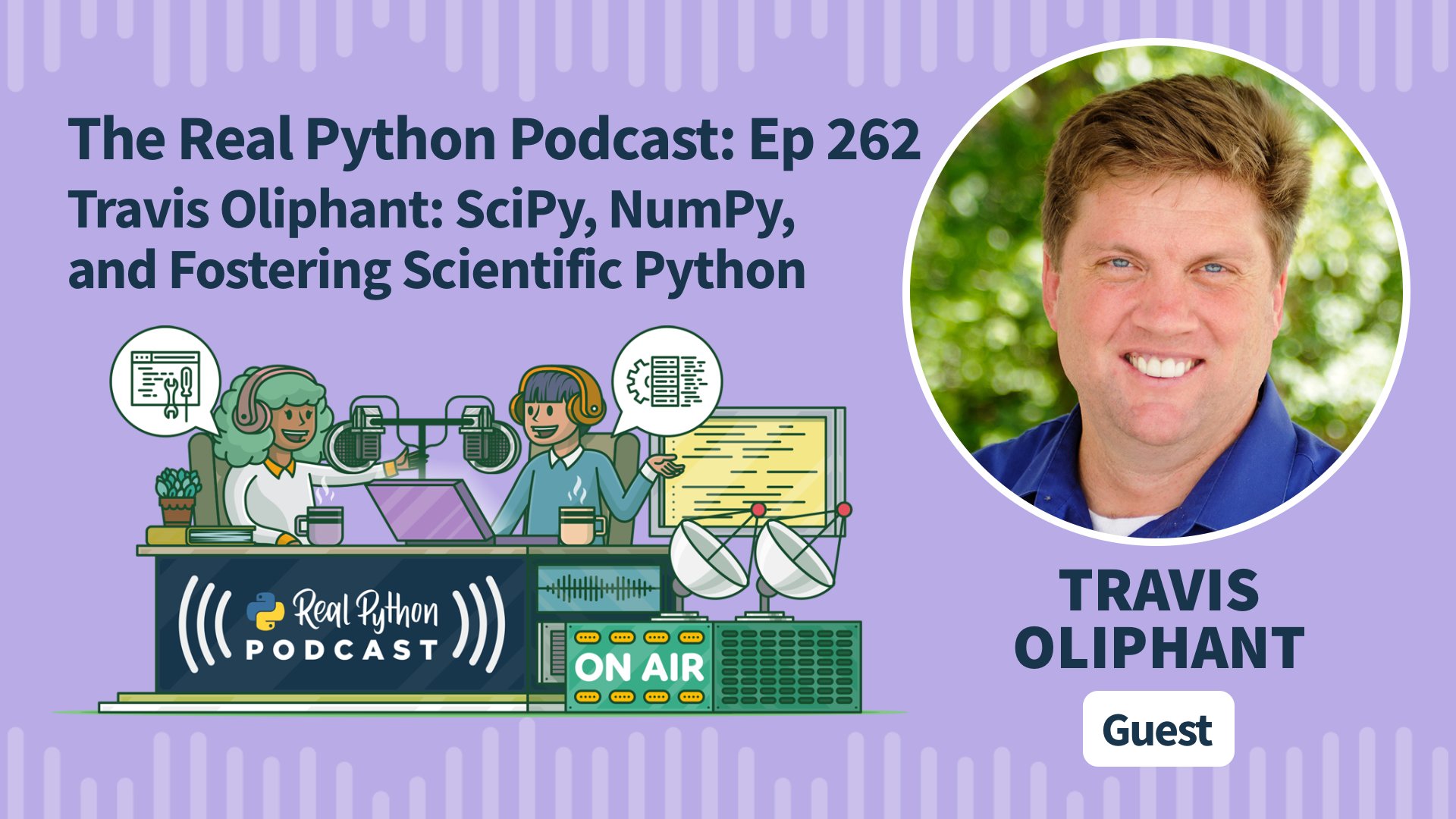
"Travis discusses his initial involvement in the open-source community and how he discovered Python while working in biomedical imaging. He was trying to find ways to manage large sets of numerical data, which led to his initial contributions and collaborations in building scientific libraries. His appearance on the show coincides with the release of the Python documentary, in which he's featured."
"We discuss the myriad organizations Travis founded, including Quansight, OpenTeams, and Anaconda. We dig into his underlying mission to continue fostering the growth of the open-source scientific computing community. This episode is sponsored by Influxdata. In this video course, you'll learn how to use NumPy by exploring several interesting examples. You'll read data from a file into an array and analyze structured arrays to perform a reconciliation. You'll also learn how to quickly chart an analysis and turn a custom function into a vectorized function."
Travis Oliphant led development of core open-source Python scientific tools including SciPy, NumPy, and Numba. He discovered Python while working in biomedical imaging and focused on managing large sets of numerical data. NumPy evolved from Numeric and underpins many scientific libraries. Numba provides an open-source JIT compiler for performance-critical code. Oliphant founded organizations such as Quansight, OpenTeams, and Anaconda to support community growth and entrepreneurship. Python functions as coordinating code for lower-level libraries and as a lingua franca for AI-generated code. Community practices like guilds and knowledge sharing help sustain contributions and project evolution.
Read at Realpython
Unable to calculate read time
Collection
[
|
...
]